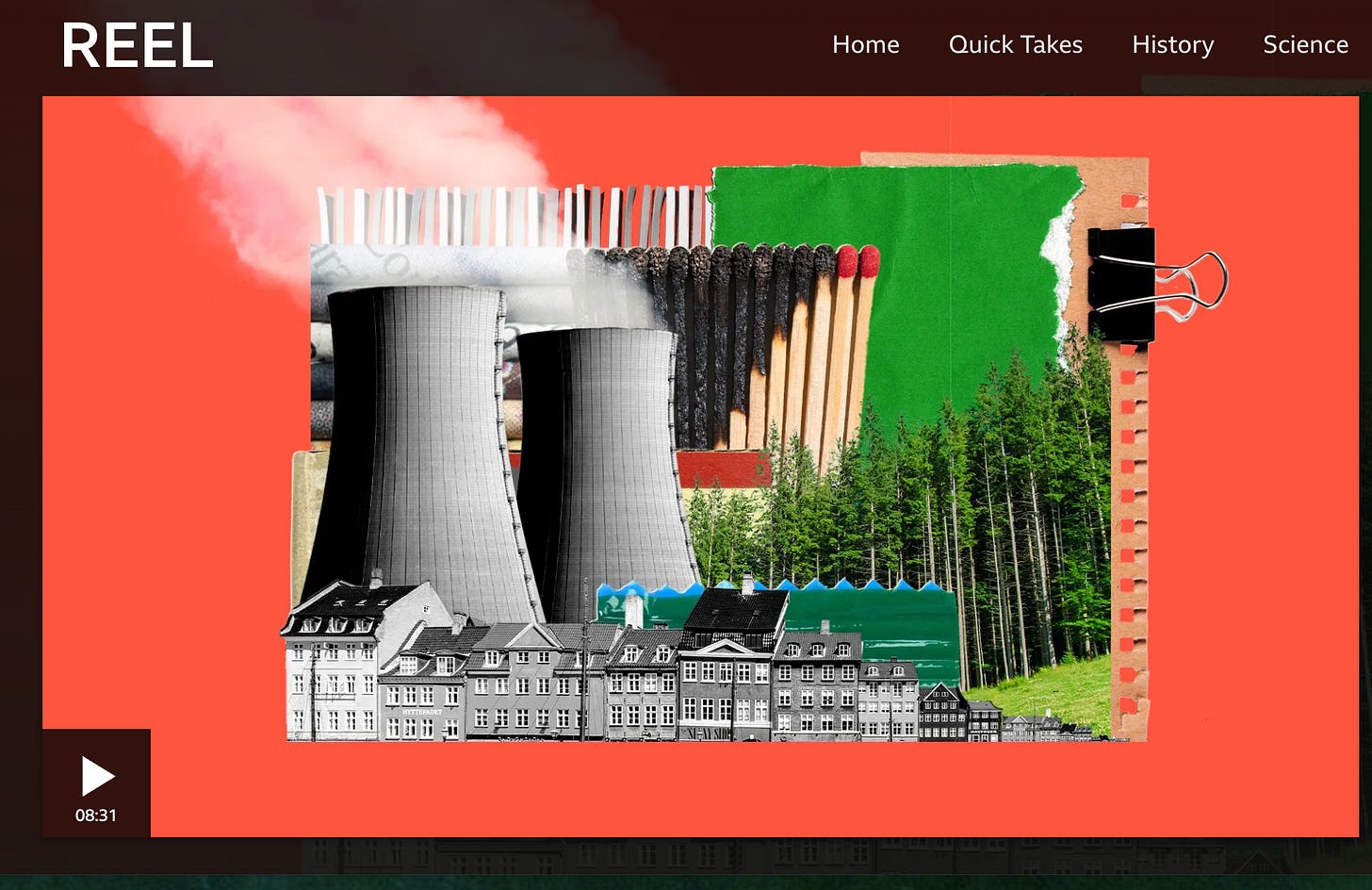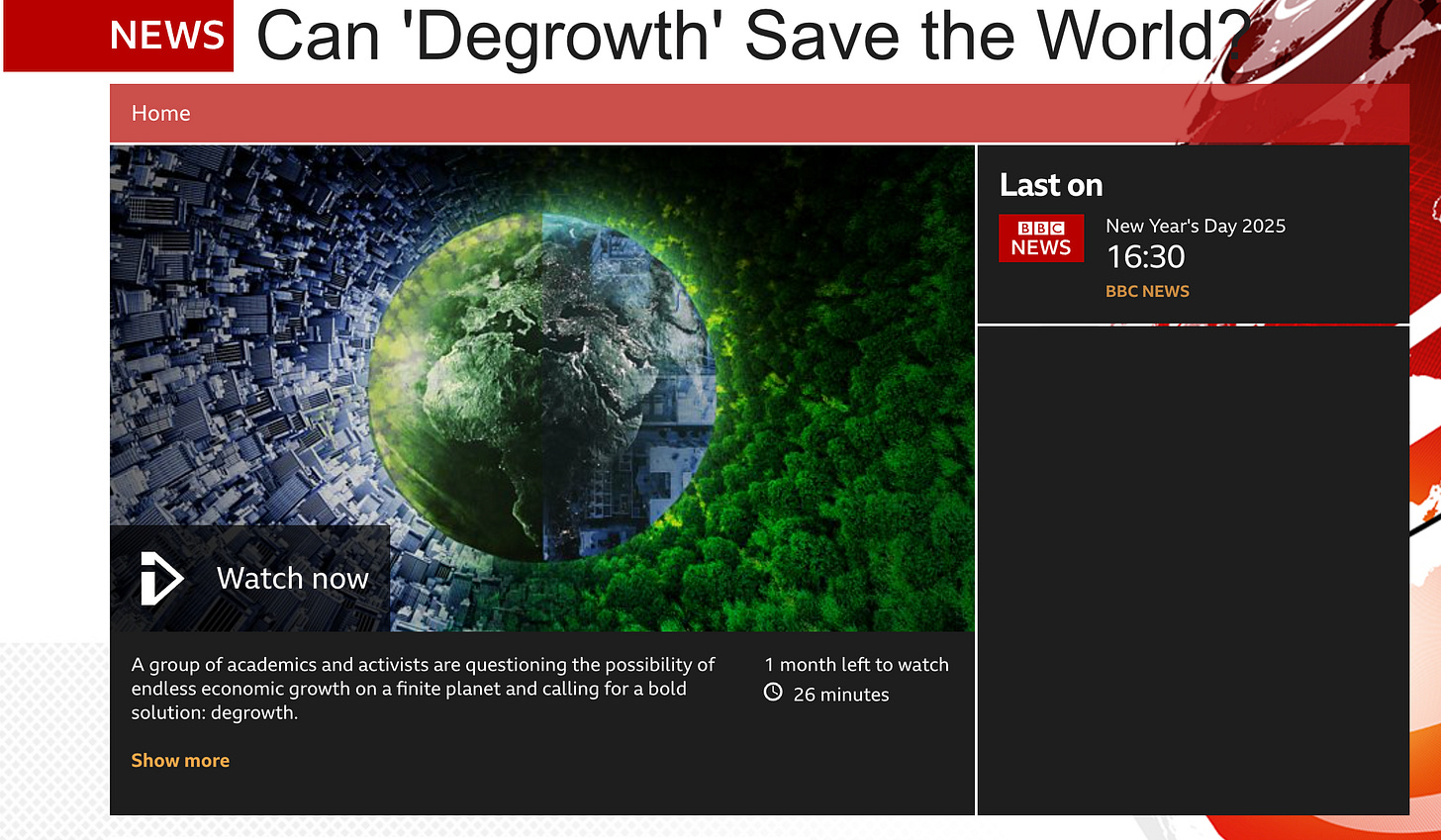Can degrowth save the world?
Interview with Alvaro Alvarez

Vlad Bunea (VB): For your documentary, you visited a collective of residents who have adopted a lifestyle that’s very different from what most of us are accustomed to – communal living, sharing of amenities, sharing leisure and entertainment spaces, working to provide their own food, and most importantly relying on each other. It is a beautiful and inspiring vision! I would love to live in such a community, but wouldn’t know where to begin. It seems many of us are trapped in various living circumstances. We depend on jobs, we cannot afford to relocate, we don’t know anyone who might join us in this fundamental shift . How can thinking about degrowth help us transition to a collective lifestyle?
Alvaro Alvarez (AA): When I started developing the documentary, it was very important for me to to focus not only on theories of degrowth, but on real world scenarios that show the impact of these ideas on the ground. I was really lucky to find the Cirerers project, and it was exciting to film there with the community.
The housing cooperative model is growing in Barcelona but there's still a way to go in order to make it viable for most people. As you mentioned, people are trapped in their daily lives, and they have much more important worries to deal with rather than thinking about alternatives or looking into them properly – being able to make it to the end of the month on precarious incomes, for example. Nevertheless, housing cooperatives are scaling up in Barcelona because the housing model has become so incredibly unaffordable for the common person due to tourism and speculation, that they are forced to look into alternatives. It seems like Žižek was right when he said that real change most times comes from the urgency of having to imagine a new reality, not because we rationally think about it as a better solution, but because you can't afford not to look for an alternative. I'm not saying we should reach rock bottom, but it looks like people are only ready to imagine new alternatives when the old model starts clearly collapsing, which is happening right now.
I think the role of degrowth and other post-growth ideas should be to offer alternatives so when the old paradigms start to implode we can all come up with new solutions that benefit us all. I'm not saying we should wait for everything to collapse, but I think the current narratives are incredibly powerful, and acting within a 'window of opportunity' might be our best chance to change mindsets. When that window opens, we should be ready for it.
Odette Brady (OB): I'm glad you mention mindsets, because it seems some people are much more comfortable collaborating in a community than others. Do you have any thoughts on strong communities as a precursor to degrowth changes? When making the documentary, did you learn anything in particular about overcoming barriers to building communities with the strangers that surround us?
AA: Yeah, community is a strong and important concept in all this, definitely. I believe that communities are inseparable from the human experience. They are everywhere and they are part of people's everyday lives. Even though in the last few decades some have tried to convince us that the individual is more important than the collective (I'm thinking of Thatcher and 'there's no such thing as society'), community is so necessary for our survival that I don't think they have managed to erase it completely. Sure, the prevailing narrative is incredibly strong and still tries to convince us that 'we can do it on our own', or that we need to 'follow our own path' and 'every individual is responsible for their own life', etc etc, but that's just really far from reality for most people. We are all dependent on each other, and that has not changed since the beginning of humanity's journey on earth.
This said, as you very well mention, some people seem to be better at coping with the demands of living in community than others. One of the things that the people living in the housing cooperative featured in the documentary mentioned, is that sometimes there are 'too many meetings' and decisions can take a long time because it takes time for people to reach agreements on important issues. This can be annoying for some, and I completely understand that feeling. But if you look at history, or at the results of all the studies conducted on wellbeing, or at happiness indicators, it's clear that the people who have stronger ties to their communities enjoy higher levels of happiness, health and life fulfilment. Conviviality is a key concept in degrowth and post-growth literature, and cannot be underestimated. And we are seeing more solutions to those sometimes tedious features of collective decision making. Things like Decidim a digital platform for citizen participation, seem to be making a difference, and I'm sure there are plenty of similar tools to solve the logistics of real participatory democracy. Maybe there's that one neighbour that you find annoying, but the alternative of living in a world where people are isolated, disenfranchised and disconnected from each other seems bleak.
VB: Speaking of long meetings, there are many ways to keep them short, engaging, fun, and effective. One example is Robert’s Rule of Order, but it too is not perfect. Community ties are as strong as the common ideals shared by its members. It is also about needing each other, and learning to depend on your neighbour, which has been lost in consumer society. I’m curious, do you think building communities from the bottom-up, would be enough to phase out capitalism? Where do you think building communities might not work?
AA: I believe the solutions might need to come both from bottom-up and from top-down, but I'm more interested in the ones that are started by grassroots groups and by people who are 'living' the solution. From a narrative point of view, these examples are usually much more engaging and popular with mainstream audiences, because it shows them that another reality is possible. Policies are important and they should be implemented, but from the narrative point of view – and as a journalist, that's where I usually focus – there's nothing as strong as showing that other worlds are possible. Once you've done that though, if the policies in place keep pushing people down or preventing people from actually making these ideas a reality, then nothing can happen.





